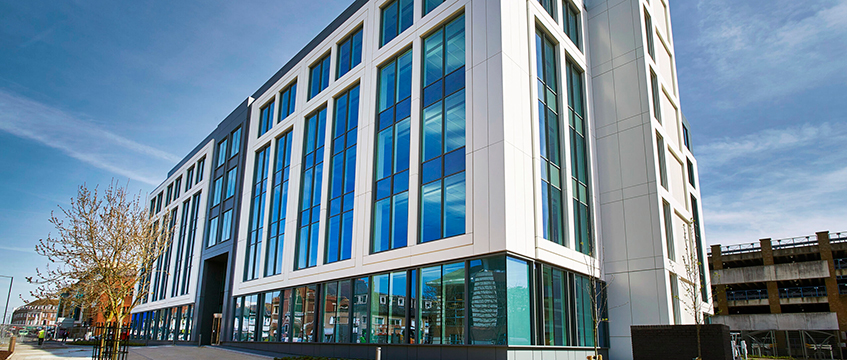Slough faces £400m asset sale
Slough Council is facing government intervention and demands to sell more than £400m in assets to shore up its finances.
The Department for Levelling Up has already approved £15.2m in support for Slough. However, a report from the Chartered Institute of Public Finance and Accountancy and appointed reviewer Jim Taylor found it will likely request more than £200m in support.
The finance is needed to offset liabilities of £174m over the next four years. The council will look to increase budget savings to £20m a year, while increasing its commercial property activity, but stepping back development.
Slough Council is facing government intervention and demands to sell more than £400m in assets to shore up its finances.
The Department for Levelling Up has already approved £15.2m in support for Slough. However, a report from the Chartered Institute of Public Finance and Accountancy and appointed reviewer Jim Taylor found it will likely request more than £200m in support.
The finance is needed to offset liabilities of £174m over the next four years. The council will look to increase budget savings to £20m a year, while increasing its commercial property activity, but stepping back development.
Levelling Up secretary Michael Gove has proposed an intervention package which would see the department take over strategic decision-making, financial management and the power to appoint or dismiss statutory officers.
Slough Council has tripled its borrowings in five years, ploughing money into property ventures, from regeneration and affordable housing, to a new council headquarters and out-of-borough commercial investments.
The council’s borrowing has soared to £760m, the third highest level of borrowing per head for an English unitary council, with a steep rise from just £238m in March 2017.
In June, former housing secretary Robert Jenrick asked the CIPFA to review the council’s finances and Taylor to review the council’s governance. Taylor is the former chief executive of Salford City Council, Trafford Council and Rochdale Borough Council.
The council issued a section 114 notice in July, effectively declaring itself bankrupt, owing to an inability to meet immediate liabilities. Slough has outstanding liabilities of £52.8m, exceeding the council’s current reserves.
Slough has yet to complete its financial accounts for 2018-19 or the following two years. Auditors at Grant Thornton are reported to have found “substantial weaknesses” in processes for preparing the report and the financial information.
CIPFA found an expected budget shortfall for 2021-22 of £111m, against a budget of £134m, and concluded that there was a need for ongoing oversight of the council’s financial plans.
Taylor also reviewed £300m in property investments and found “little evidence that this followed any concerted, strategic or commercial plan of investment”.
These include £59m on leisure services and parks, including three leisure centres and an ice arena, and a new £54m council headquarters at Observatory House (pictured). Slough has also invested £42m in regeneration for a new hotel and land for future regeneration of North West Quadrant and £51m to purchase affordable housing in the borough through the council-owned James Elliman Homes.
A further £100m went to 15 properties purchased between 2015 and 2020 to generate commercial income. This included £30m of out-of-borough investments, including superstores in Gosport and Wolverhampton and a cinema in Basingstoke. Some £66m was spent on commercial property in the borough. These properties have generated £5.6m per annum, before costs.
Slough is opting to reduce development activity while seeking to raise its commercial investments and risk profile. The report says “council intervention in the development market is to be stepped back significantly”, for this reason the council no longer has a regeneration lead.
Council leader James Swindlehurst has established a specific portfolio lead for governance and has also taken on both strategic and operational financial matters.
In a separate statement responding to the report, Swindlehurst, said the council was in a better position than earlier in the year, having made a number of changes, including appointing a new finance team.
Swindlehurst said: “There are still many difficult decisions ahead of us. We are financially in a very challenging place and we will be asking government for a level of capitalisation direction which has never before been made by a local authority.
“Together we can continue to make major strides at pace in righting the wrongs of our past and putting the council on a sustainable financial footing, improving our governance and making the right decisions for our residents and town.”
Image from Porterfield PR
To send feedback, e-mail emma.rosser@eg.co.uk or tweet @EmmaARosser or @EGPropertyNews











